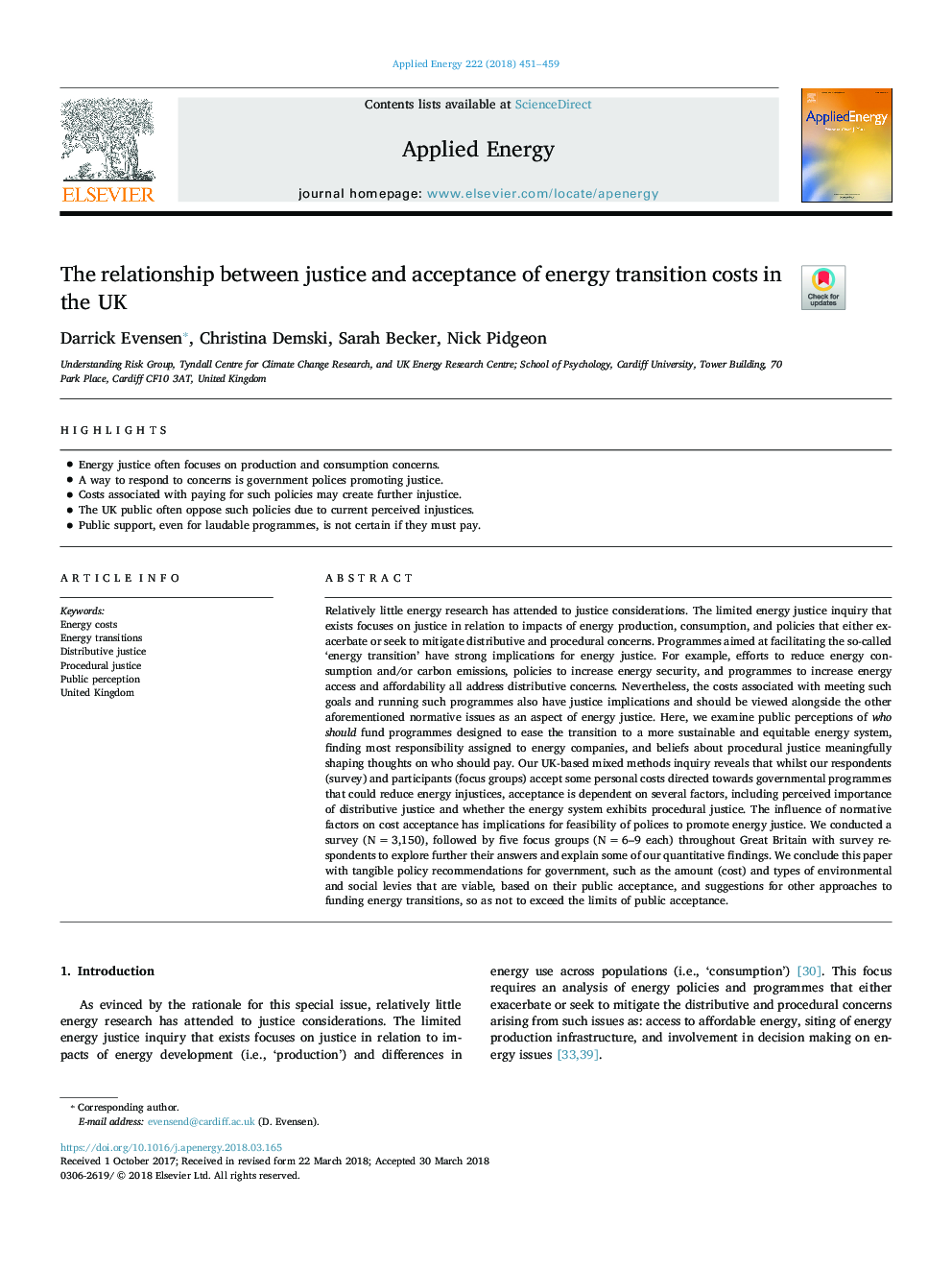| کد مقاله | کد نشریه | سال انتشار | مقاله انگلیسی | نسخه تمام متن |
|---|---|---|---|---|
| 6680226 | 1428068 | 2018 | 9 صفحه PDF | دانلود رایگان |
عنوان انگلیسی مقاله ISI
The relationship between justice and acceptance of energy transition costs in the UK
ترجمه فارسی عنوان
رابطه بین عدالت و پذیرش هزینه های انتقال انرژی در انگلستان
دانلود مقاله + سفارش ترجمه
دانلود مقاله ISI انگلیسی
رایگان برای ایرانیان
کلمات کلیدی
هزینه های انرژی، انتقال انرژی، عدالت توزیع، عدالت رویه ای، ادراک عمومی، انگلستان،
موضوعات مرتبط
مهندسی و علوم پایه
مهندسی انرژی
مهندسی انرژی و فناوری های برق
چکیده انگلیسی
Relatively little energy research has attended to justice considerations. The limited energy justice inquiry that exists focuses on justice in relation to impacts of energy production, consumption, and policies that either exacerbate or seek to mitigate distributive and procedural concerns. Programmes aimed at facilitating the so-called 'energy transition' have strong implications for energy justice. For example, efforts to reduce energy consumption and/or carbon emissions, policies to increase energy security, and programmes to increase energy access and affordability all address distributive concerns. Nevertheless, the costs associated with meeting such goals and running such programmes also have justice implications and should be viewed alongside the other aforementioned normative issues as an aspect of energy justice. Here, we examine public perceptions of who should fund programmes designed to ease the transition to a more sustainable and equitable energy system, finding most responsibility assigned to energy companies, and beliefs about procedural justice meaningfully shaping thoughts on who should pay. Our UK-based mixed methods inquiry reveals that whilst our respondents (survey) and participants (focus groups) accept some personal costs directed towards governmental programmes that could reduce energy injustices, acceptance is dependent on several factors, including perceived importance of distributive justice and whether the energy system exhibits procedural justice. The influence of normative factors on cost acceptance has implications for feasibility of polices to promote energy justice. We conducted a survey (Nâ¯=â¯3,150), followed by five focus groups (Nâ¯=â¯6-9 each) throughout Great Britain with survey respondents to explore further their answers and explain some of our quantitative findings. We conclude this paper with tangible policy recommendations for government, such as the amount (cost) and types of environmental and social levies that are viable, based on their public acceptance, and suggestions for other approaches to funding energy transitions, so as not to exceed the limits of public acceptance.
ناشر
Database: Elsevier - ScienceDirect (ساینس دایرکت)
Journal: Applied Energy - Volume 222, 15 July 2018, Pages 451-459
Journal: Applied Energy - Volume 222, 15 July 2018, Pages 451-459
نویسندگان
Darrick Evensen, Christina Demski, Sarah Becker, Nick Pidgeon,
